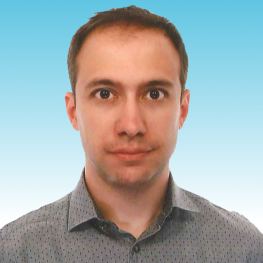
Augusto Luis Ballardini
GET-COFUND MARIECURIE FELLOW AT UAH
Reliable localization algorithms for autonomous driving cars
About the research project ‘Reliable localization algorithms for autonomous driving cars’
Research Line: Advanced Self-Driving Cars in the Smart Cities of the Future
Mentor: Prof. Miguel Ángel Sotelo Vázquez
Abstract
In the context of autonomous vehicles, achieving a reliable and accurate vehicle localization presents multiple challenges which are, in most cases, related to the environment perception. On the one hand, the availability and reliability limitations of GNSS systems, which can give us no more than an approximate in-road position estimate, require further detection pipelines to create a description of the surrounding scene. The main issue in detecting relevant scene features in common driving scenarios using computer vision algorithms is due to the variability of the features and the different environmental conditions. This is made even more challenging by the huge amount of clutter present in complex areas such as cities.
The main goal of this research project is to enable robust automated driving in difficult traffic conditions, such as urban scenarios. Toward this goal, a real-time accurate localization with respect to topometric LIDAR enhanced map and a high-level localization by means of a semantic scene interpretation will be investigated.
Moreover, following the current researches of the INVETT group, the project aims to combine Lidar, Vision and Radar data with Deep Learning techniques, developing a powerful and robust scene interpretation system capable of providing accurate global localization in changing environments.
About Augusto Luis Ballardini
Augusto Luis Ballardini received his PhD in Computer Science in 2016 from the Università degli Studi di Milano – Bicocca, Italy, where he worked with the IRALAB Research Group lead by Prof. Domenico G. Sorrenti. His research experience is focused on how to model the vehicle surroundings using computer vision and LIDAR based approaches, exploiting the environmental information provided with standard cartographic maps such as the OpenStreetMap service. In particular, his research activities are connected to the vehicle localization problem, which is fundamental to safely navigate Intelligent Vehicles in areas shared with human drivers. His PhD dissertation regards the synergistic exploitation of heterogeneous sensing pipelines and digital maps in order to produce accurate lane-level vehicle localization in both difficult urban contexts and highway scenarios. Toward this goal, the Road Layout Estimation framework was developed to integrate and exploit information such as the road network, the building façade configuration and the geometry of urban intersection areas. These works were presented in the main IEEE-ITS and IEEE-RAS conferences.
In 2015 he was a visiting PhD Student at the University of Alcalá de Henares under the supervision of prof. Miguel Ángel Sotelo. During that period, he worked closely with the ISIS Research Team, paving the way for collaborations such as the work “Ego-Lane Estimation by Modeling Lanes and Sensor Failures”, presented in 2017 during the Intelligent Transportation System Conference (ITSC2017 – Yokohama).
Currently, his is developing “Reliable localization algorithms for autonomous driving cars” project as a GET-COFUND MarieCurie Fellow at the University of Alcalá, together with the INVETT Research group.






